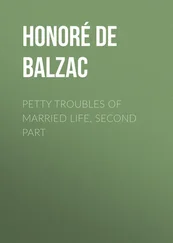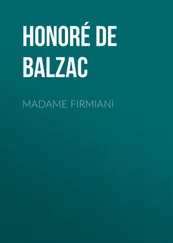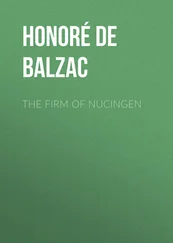Honoré Balzac - Scenes from a Courtesan's Life
Здесь есть возможность читать онлайн «Honoré Balzac - Scenes from a Courtesan's Life» — ознакомительный отрывок электронной книги совершенно бесплатно, а после прочтения отрывка купить полную версию. В некоторых случаях можно слушать аудио, скачать через торрент в формате fb2 и присутствует краткое содержание. Издательство: Иностранный паблик, Жанр: literature_19, foreign_antique, foreign_prose, на английском языке. Описание произведения, (предисловие) а так же отзывы посетителей доступны на портале библиотеки ЛибКат.
- Название:Scenes from a Courtesan's Life
- Автор:
- Издательство:Иностранный паблик
- Жанр:
- Год:неизвестен
- ISBN:нет данных
- Рейтинг книги:4 / 5. Голосов: 1
-
Избранное:Добавить в избранное
- Отзывы:
-
Ваша оценка:
- 80
- 1
- 2
- 3
- 4
- 5
Scenes from a Courtesan's Life: краткое содержание, описание и аннотация
Предлагаем к чтению аннотацию, описание, краткое содержание или предисловие (зависит от того, что написал сам автор книги «Scenes from a Courtesan's Life»). Если вы не нашли необходимую информацию о книге — напишите в комментариях, мы постараемся отыскать её.
Scenes from a Courtesan's Life — читать онлайн ознакомительный отрывок
Ниже представлен текст книги, разбитый по страницам. Система сохранения места последней прочитанной страницы, позволяет с удобством читать онлайн бесплатно книгу «Scenes from a Courtesan's Life», без необходимости каждый раз заново искать на чём Вы остановились. Поставьте закладку, и сможете в любой момент перейти на страницу, на которой закончили чтение.
Интервал:
Закладка:
Lydie’s rooms, opposite to Peyrade’s shabby lodging, consisted of an ante-room, a little drawing-room, a bedroom, and a small dressing-room. The door, like that of Peyrade’s room, was constructed of a plate of sheet-iron three lines thick, sandwiched between two strong oak planks, fitted with locks and elaborate hinges, making it as impossible to force it as if it were a prison door. Thus, though the house had a public passage through it, with a shop below and no doorkeeper, Lydie lived there without a fear. The dining-room, the little drawing-room, and her bedroom – every window-balcony a hanging garden – were luxurious in their Dutch cleanliness.
The Flemish nurse had never left Lydie, whom she called her daughter. The two went to church with a regularity that gave the royalist grocer, who lived below, in the corner shop, an excellent opinion of the worthy Canquoelle. The grocer’s family, kitchen, and counter-jumpers occupied the first floor and the entresol; the landlord inhabited the second floor; and the third had been let for twenty years past to a lapidary. Each resident had a key of the street door. The grocer’s wife was all the more willing to receive letters and parcels addressed to these three quiet households, because the grocer’s shop had a letter-box.
Without these details, strangers, or even those who know Paris well, could not have understood the privacy and quietude, the isolation and safety which made this house exceptional in Paris. After midnight, Pere Canquoelle could hatch plots, receive spies or ministers, wives or hussies, without any one on earth knowing anything about it.
Peyrade, of whom the Flemish woman would say to the grocer’s cook, “He would not hurt a fly!” was regarded as the best of men. He grudged his daughter nothing. Lydie, who had been taught music by Schmucke, was herself a musician capable of composing; she could wash in a sepia drawing, and paint in gouache and water-color. Every Sunday Peyrade dined at home with her. On that day this worthy was wholly paternal.
Lydie, religious but not a bigot, took the Sacrament at Easter, and confessed every month. Still, she allowed herself from time to time to be treated to the play. She walked in the Tuileries when it was fine. These were all her pleasures, for she led a sedentary life. Lydie, who worshiped her father, knew absolutely nothing of his sinister gifts and dark employments. Not a wish had ever disturbed this pure child’s pure life. Slight and handsome like her mother, gifted with an exquisite voice, and a delicate face framed in fine fair hair, she looked like one of those angels, mystical rather than real, which some of the early painters grouped in the background of the Holy Family. The glance of her blue eyes seemed to bring a beam from the sky on those she favored with a look. Her dress, quite simple, with no exaggeration of fashion, had a delightful middle-class modesty. Picture to yourself an old Satan as the father of an angel, and purified in her divine presence, and you will have an idea of Peyrade and his daughter. If anybody had soiled this jewel, her father would have invented, to swallow him alive, one of those dreadful plots in which, under the Restoration, the unhappy wretches were trapped who were designate to die on the scaffold. A thousand crowns were ample maintenance for Lydie and Katt, whom she called nurse.
As Peyrade turned into the Rue des Moineaux, he saw Contenson; he outstripped him, went upstairs before him, heard the man’s steps on the stairs, and admitted him before the woman had put her nose out of the kitchen door. A bell rung by the opening of a glass door, on the third story where the lapidary lived warned the residents on that and the fourth floors when a visitor was coming to them. It need hardly be said that, after midnight, Peyrade muffled this bell.
“What is up in such a hurry, Philosopher?”
Philosopher was the nickname bestowed on Contenson by Peyrade, and well merited by the Epictetus among police agents. The name of Contenson, alas! hid one of the most ancient names of feudal Normandy.
“Well, there is something like ten thousand francs to be netted.”
“What is it? Political?”
“No, a piece of idiocy. Baron de Nucingen, you know, the old certified swindler, is neighing after a woman he saw in the Bois de Vincennes, and she has got to be found, or he will die of love. – They had a consultation of doctors yesterday, by what his man tells me. – I have already eased him of a thousand francs under pretence of seeking the fair one.”
And Contenson related Nucingen’s meeting with Esther, adding that the Baron had now some further information.
“All right,” said Peyrade, “we will find his Dulcinea; tell the Baron to come to-night in a carriage to the Champs-Elysees – the corner of the Avenue de Gabriel and the Allee de Marigny.”
Peyrade saw Contenson out, and knocked at his daughter’s rooms, as he always knocked to be let in. He was full of glee; chance had just offered the means, at last, of getting the place he longed for.
He flung himself into a deep armchair, after kissing Lydie on the forehead, and said:
“Play me something.”
Lydie played him a composition for the piano by Beethoven.
“That is very well played, my pet,” said he, taking Lydie on his knees. “Do you know that we are one-and-twenty years old? We must get married soon, for our old daddy is more than seventy – ”
“I am quite happy here,” said she.
“You love no one but your ugly old father?” asked Peyrade.
“Why, whom should I love?”
“I am dining at home, my darling; go and tell Katt. I am thinking of settling, of getting an appointment, and finding a husband worthy of you; some good young man, very clever, whom you may some day be proud of – ”
“I have never seen but one yet that I should have liked for a husband – ”
“You have seen one then?”
“Yes, in the Tuileries,” replied Lydie. “He walked past me; he was giving his arm to the Comtesse de Serizy.”
“And his name is?”
“Lucien de Rubempre. – I was sitting with Katt under a lime-tree, thinking of nothing. There were two ladies sitting by me, and one said to the other, ‘There are Madame de Serizy and that handsome Lucien de Rubempre.’ – I looked at the couple that the two ladies were watching. ‘Oh, my dear!’ said the other, ‘some women are very lucky! That woman is allowed to do everything she pleases just because she was a de Ronquerolles, and her husband is in power.’ – ‘But, my dear,’ said the other lady, ‘Lucien costs her very dear.’ – What did she mean, papa?”
“Just nonsense, such as people of fashion will talk,” replied Peyrade, with an air of perfect candor. “Perhaps they were alluding to political matters.”
“Well, in short, you asked me a question, so I answer you. If you want me to marry, find me a husband just like that young man.”
“Silly child!” replied her father. “The fact that a man is handsome is not always a sign of goodness. Young men gifted with an attractive appearance meet with no obstacles at the beginning of life, so they make no use of any talent; they are corrupted by the advances made to them by society, and they have to pay interest later for their attractiveness! – What I should like for you is what the middle classes, the rich, and the fools leave unholpen and unprotected – ”
“What, father?”
“An unrecognized man of talent. But, there, child; I have it in my power to hunt through every garret in Paris, and carry out your programme by offering for your affection a man as handsome as the young scamp you speak of; but a man of promise, with a future before him destined to glory and fortune. – By the way, I was forgetting. I must have a whole flock of nephews, and among them there must be one worthy of you! – I will write, or get some one to write to Provence.”
Читать дальшеИнтервал:
Закладка:
Похожие книги на «Scenes from a Courtesan's Life»
Представляем Вашему вниманию похожие книги на «Scenes from a Courtesan's Life» списком для выбора. Мы отобрали схожую по названию и смыслу литературу в надежде предоставить читателям больше вариантов отыскать новые, интересные, ещё непрочитанные произведения.
Обсуждение, отзывы о книге «Scenes from a Courtesan's Life» и просто собственные мнения читателей. Оставьте ваши комментарии, напишите, что Вы думаете о произведении, его смысле или главных героях. Укажите что конкретно понравилось, а что нет, и почему Вы так считаете.












